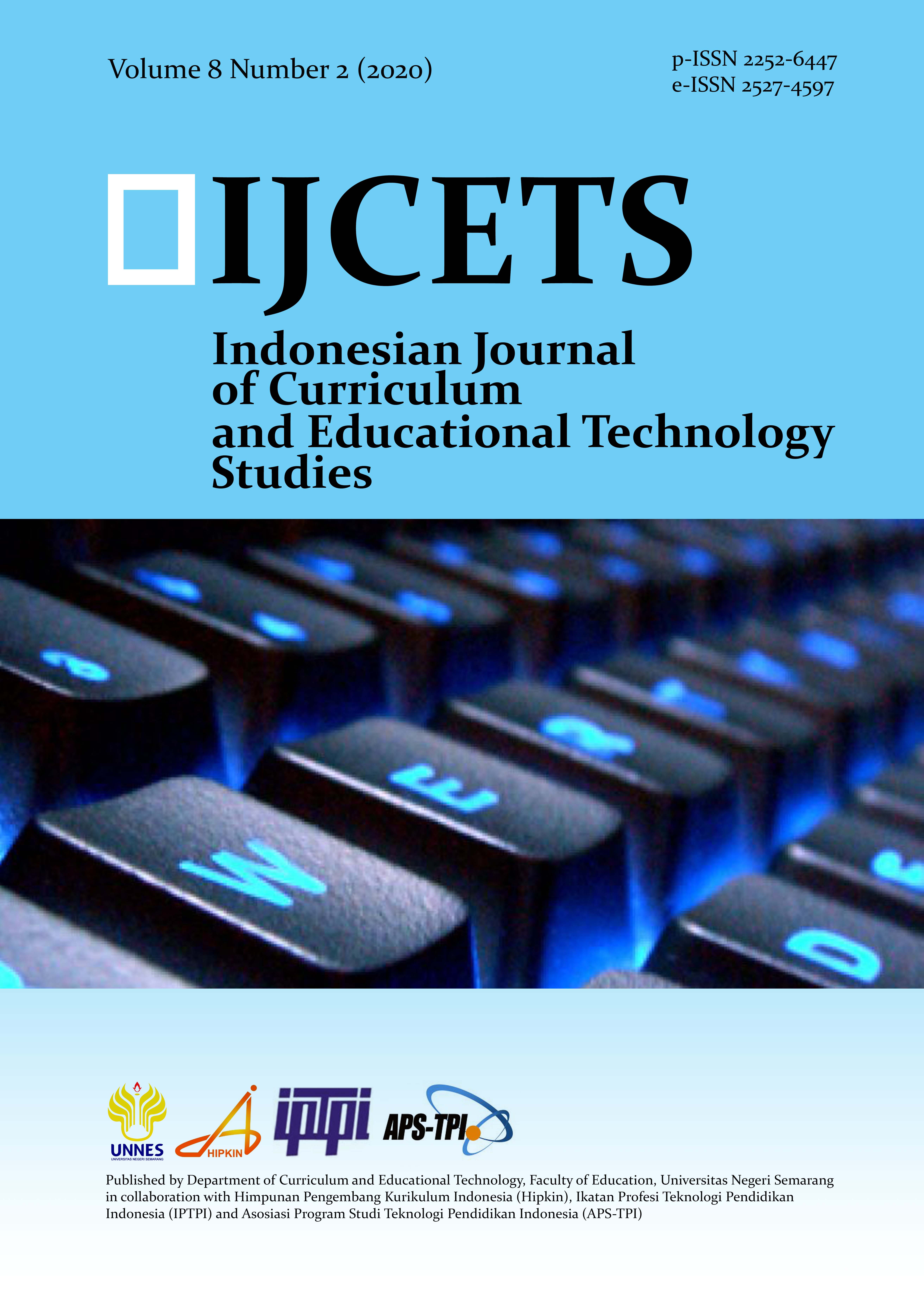Abstract
The purpose of this paper is to analyze the status of curriculum development and implementation in the Ethiopian education system against Schwab’s Signs of Crisis in the Curriculum Field. Education policy documents of the Ministry of Ethiopia, different research journals, and experiences of the researchers were the major data sources in this study. Data were analyzed through narration-based on data driven themes. The analysis confirmed that Schwab’s sign of crises in the curriculum field were prevalent, and the resolutions made by the predominant view followers as a response to Schwab’s signs of crisis in the curriculum field were not in place in the curriculum development and implementation processes in the Ethiopian education system. It means that the curriculum field is still vague in the Ethiopian education system, which implies that the quality of education in Ethiopia is highly deteriorating. Finally, the researchers recommended that curricula specialists should exert unreserved effort to save the curriculum field from its gloomy occasion in the Ethiopian education system and thereby to assure renaissance for the quality of education.
Abstrak
Artikel ini bertujuan untuk menganalisis status pengembangan dan implementasi kurikulum dalam sistem pendidikan Etiopia mengacu pada rumusan krisis dalam bidang kurikulum oleh Schwab. Dokumen-dokumen kebijakan pendidikan yang dikeluarkan oleh kementerian Etiopia, jurnal-jurnal ilmiah, dan pengalaman peneliti menjadi sumber data utama penelitian ini. Data yang diperoleh dianalisis secara naratif berdasarkan tema-tema yang muncul. Analisis data menunjukkan bahwa rumusan kritis dalam bidang kurikulum yang dikemukakan oleh Schwab merupakan hal yang lazim dan resolusi yang dikemukakan oleh pandangan utama sebagai respons terhadap pandangan Schwab tersebut tidak diakomodasi dalam proses pengembangan dan implementasi kurikulum dalam sistem pendidikan di Etiopia. Hal tersebut menunjukkan bahwa bidang kurikulum di Etiopia masih tidak jelas dan berbuah pada kondisi pendidikan yang memburuk. Terakhir, peneliti merekomendasikan agar para ahli kurikulum dapat mengerahkan segala upayanya untuk menyelamatkan bidang kurikulum dari ketidakjelasannya dan dengan demikian dapat menjamin upaya kebangkitan kembali kualitas pendidikan di Etiopia.
References
Adane, T. (1993). A Historical Survey of State Education in Ethiopia. Addis Ababa: Asmara.
Ayemayehu, B. & Lasser, J. (2012). Education in Ethiopia: Past, Present and Future Prospects, African Nebula, issue 5.USA; Texas state university.
Deng, Z. (2014). The “Why†and “What†of Curriculum Inquiry: Schwab’s The Practical Revisited. National Institute of Education. Nanyang Technological University.
Federal Democratic Republic of Ethiopia. (1994). Education and Training Policy. St. George Printing Press.
Federal Democratic Republic of Ethiopia. (2020). Ethiopian education development roadmap (2018-30): An integrated executive summary. Addis Ababa, ESC.
International Centre for Disability and Rehabilitation. (2005). Evaluation of the second cycle of the secondary school curriculum: executive summary report. Addis Ababa; Ministry of education.
Ministry of Education. (1994). The Education and Training Policy and its Implementation. Addis Ababa: St. George Printing Press.
Ministry of Education. (2002). The Education and Training Policy and its Implementation. Addis Ababa; Ministry of education.
Ministry of Education. (2009). Standard of Primary Education. Addis Ababa; Ministry of education.
Ministry of Education. (2010). Curriculum framework for Ethiopian education: KG–Grade 12. Addis Ababa: A.M printing and packaging P.L.C.
Ministry of Education. (2013). Education Statistics Annual Abstract 2005 E.C (2012/2013). Addis Ababa: Ministry of Education.
Ministry of Education. (2015). Education Sector Development Program (ESDP_V): Program Action Plan. Ministry of Education, Addis Ababa.
Ministry of Education. (2016). Education Statistics Annual Abstract 2009 E.C (2015/2016). Addis Ababa: Ministry of Education.
Ministry of Education. (2018). Ethiopian education development roadmap (2018-30). Ministry of Education, Education Strategy Center (ESC).
Negash, T. (1990). The crisis of Ethiopia Education: Some Implications for Nation Building. Sweden: Uppsala University.
Negash, T. (2006). Education in Ethiopia: From crisis to the brink of collapse. Uppsala: Nordiska Afrika Institute.
Ornstein, A. C. & Hunkins, F. P. (2018). Curriculum: Foundations, principles and issues (7th ed.). USA: Pearson Education.
Ornstein, A.C. & Levine, D.U. (2008). Foundations of Education. 10th Edition. Boston & New York: Houghton Mifflin Company.
Pinar, W. F. Reynolds, W, M., Slattery, P. & Taubman, P. M. (1995). Understanding Curriculum. New York: Peter Lang.
Schwab, J. (1969). The Practical: A Language for Curriculum. The School Review, Vol. 78, No. 1; the University of Chicago Press.
Solomon, M. & Aschale, T. (2019). The Ethiopian curriculum development and implementation vis-à -vis Schwab’s signs of crisis in the field of curriculum. Cogent education, 6(1), 1-16.
Tefera, S. (1996). Attempts of educational reform in Ethiopia: A top-down or a bottom-up reform? The Ethiopian Journal of Education, 16(1), 1-37.
Wraga, W. G. & Hlebowitsh, P. S. (2003) Toward a renaissance in curriculum theory and development in the USA. Journal of Curriculum Studies, 35(4), 425–437.
Zewdie, M. (2000). A Study Guide for Curriculum Implementation and Evaluation. Unpublished Teaching Materials for the Course Educ.676, Addis Ababa University.
